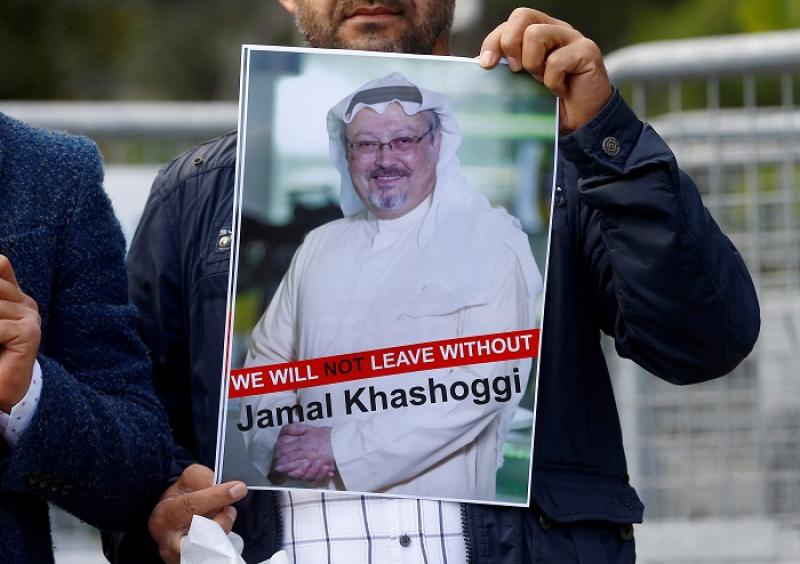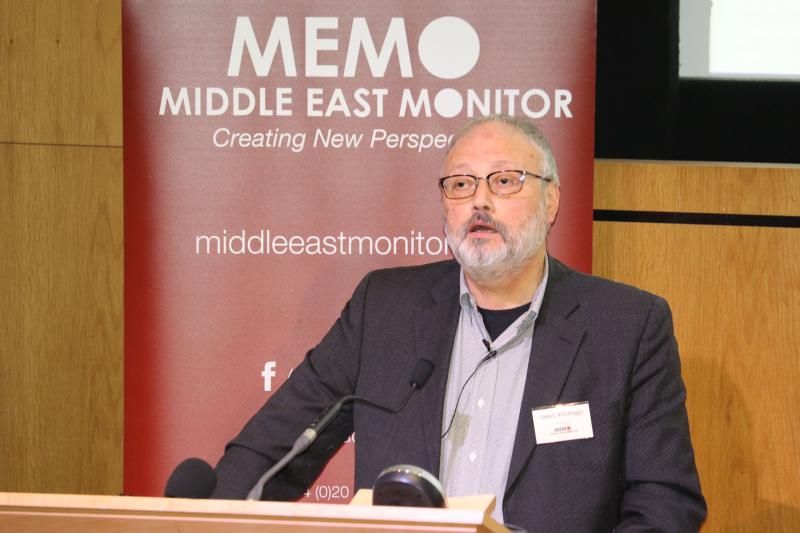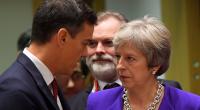 The Washington Post published a new column by missing Saudi writer-journalist Jamal Khashoggi Wednesday that the paper said it received after he was reported missing.
The Washington Post published a new column by missing Saudi writer-journalist Jamal Khashoggi Wednesday that the paper said it received after he was reported missing.
In it, he warns governments in the Middle East "have been given free rein to continue silencing the media at an increasing rate."
The Post posted the column on its website hours after Turkish crime-scene investigators searched the home of the Saudi consul general in Instanbul on Wednesday. Earlier, a pro-government newspaper published a gruesome account of the journalist's alleged slaying.
The column was published more than two weeks after Khashoggi was last seen entering the Saudi consulate in Istanbul. Turkish officials say he was killed by Saudi agents. The Saudi government has denied it.
In just over 700 words, his column lamented the dearth of a free press in the Arab world, which he said “is facing its own version of an Iron Curtain, imposed not by external actors, but through domestic forces vying for power.” He sought to promote the free exchange of ideas and information under the headline, “What the Arab world needs most is free expression.” Khashoggi’s editor, Karen Attiah, wrote a preface to the column. She said she received the file from Khashoggi’s translator and assistant a day after he was reported to be missing.
Khashoggi’s editor, Karen Attiah, wrote a preface to the column. She said she received the file from Khashoggi’s translator and assistant a day after he was reported to be missing.
“The Post held off publishing it because we hoped Jamal would come back to us so that he and I could edit it together,” Attiah wrote. “Now I have to accept: That is not going to happen. This is the last piece of his I will edit for The Post.”
In his column on Wednesday, Khashoggi wrote that government clampdowns on the press in the Arab world were sometimes met with little resistance.
“These actions no longer carry the consequence of a backlash from the international community,” he said. “Instead, these actions may trigger condemnation quickly followed by silence.”
Kashoggi wrote that the Arab world was facing its own version of an Iron Curtain imposed by domestic forces vying for power.
He wrote that he had been reading a Freedom House report on political rights and civil liberties around the world, and it ranked most countries in the Arab world as “not free.”
“As a result, Arabs living in these countries are either uninformed or misinformed,” Khashoggi wrote. “They are unable to adequately address, much less publicly discuss, matters that affect the region and their day-to-day lives.”
He wrote about the hopes that had been shattered across the Middle East after Arab Spring uprisings in 2011 failed in several countries. And he wrote about governments’ efforts to imprison dissidents, block internet communication and censor the media.
He suggested the formation of a transnational media outlet — like Radio Free Europe, which was created by the United States government during the Cold War — that could be a platform for Arab writers, reporters and thinkers.
“We need to provide a platform for Arab voices,” Khashoggi wrote.
“We suffer from poverty, mismanagement and poor education. Through the creation of an independent international forum, isolated from the influence of nationalist governments spreading hate through propaganda, ordinary people in the Arab world would be able to address the structural problems their societies face.”
 International
International
30761 hour(s) 4 minute(s) ago ;
Morning 11:58 ; Saturday ; Apr 20, 2024
Khashoggi’s last call for free speech in Arab
Send
Bangla Tribune Desk
Published : 15:45, Oct 18, 2018 | Updated : 15:47, Oct 18, 2018
Published : 15:45, Oct 18, 2018 | Updated : 15:47, Oct 18, 2018
0 ...0 ...
/zmi/
Topics: Top Stories
- KOICA donates medical supplies to BSMMU
- 5 more flights to take back British nationals to London
- Covid19: Rajarbagh, Mohammadpur worst affected
- Momen joins UN solidarity song over COVID-19 combat
- Covid-19: OIC to hold special meeting
- WFP begins food distribution in Cox’s Bazar
- WFP begins food distribution in Cox’s Bazar
- 290 return home to Australia
- Third charter flight for US citizens to return home
- Dhaka proposes to postpone D8 Summit
Unauthorized use of news, image, information, etc published by Bangla Tribune is punishable by copyright law. Appropriate legal steps will be taken by the management against any person or body that infringes those laws.
Bangla Tribune is one of the most revered online newspapers in Bangladesh, due to its reputation of neutral coverage and incisive analysis.
F R Tower, 8/C Panthapath, Shukrabad, Dhaka-1207 | Phone: 58151324; 58151326, Fax: 58151329 | Mob: 01730794527, 01730794528


